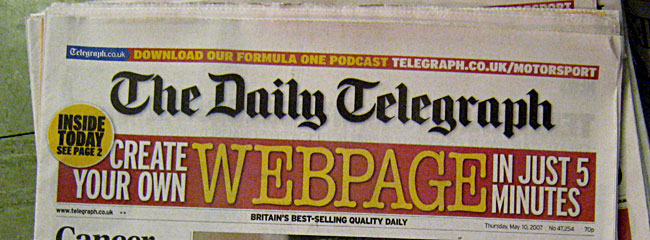Rupert Murdoch, writing about ‘mixed media’ in Forbes.com…
Those of us in so-called old media have also learned the hard way what this new meaning of networking spells for our businesses. Media companies don’t control the conversation anymore, at least not to the extent that we once did. The big hits of the past were often, if not exactly flukes, then at least the beneficiaries of limited options. Of course a film is going to be a success if it’s the only movie available on a Saturday night. Similarly, when three networks divided up a nation of 200 million, life was a lot easier for television executives. And not so very long ago most of the daily newspapers that survived the age of consolidation could count themselves blessed with monopolies in their home cities.
All that has changed. Options abound. Fans of small niches can now find new content they could never before. Going elsewhere for news and entertainment is easier and cheaper than ever. And people’s expectations of media have undergone a revolution. They are no longer content to be a passive audience; they insist on being participants, on creating their own material and finding others who will want to read, listen and watch.
That’s the bad news, apparently. But,
The good news is that we are learning–and fast. Take the type of media I know best–news. News is in more demand than ever, but the vast network of Internet-savvy news junkies want their news with several fresh twists: constantly updated, relevant to their daily lives, complete with commentary and analysis, and presented in a way that allows them to interact not just with the news but with each other about the news. They won’t wait until six o’clock to watch the news on television or until the next morning to read it in isolation. This plainly provides a challenge for news providers but also an opportunity to be far more engaged with the audience.
Companies that take advantage of this new meaning of network and adapt to the expectations of the networked consumer can look forward to a new golden age of media.
Translation: stick with those News Corp shares.

